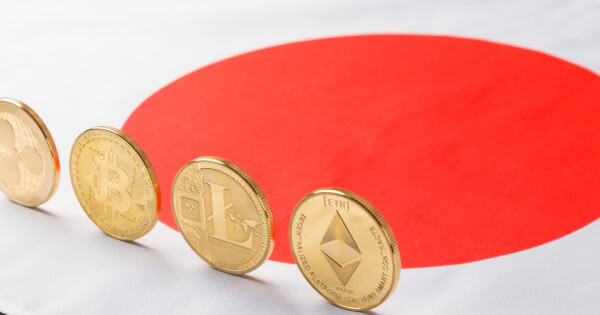Proposal to Amend Cryptocurrency Leverage Regulations in Japan
Jessie A Ellis Oct 18, 2023 02:48
JCBA has proposed to JVCEA to amend the leverage ratio regulations in cryptocurrency margin trading, advocating for the application of corporate leverage calculation methods to individual transactions as well. The proposal aims to align the crypto market's leverage regulations with other derivative markets and possibly re-attract users who shifted to overseas exchanges for higher leverage.

On October 17, the Japan Cryptocurrency Business Association (JCBA) presented a proposal to the Japan Virtual Currency Exchange Association (JVCEA) to review the leverage ratio in cryptocurrency margin trading, according to Coinpost. JCBA argues that the current leverage ratio is overly restrictive compared to other derivative markets, suggesting a shift to a calculation method based on past price volatility (volatility), and has sought cooperation from JVCEA for the realization of the amendment proposal.
Previously, the maximum leverage of 25 times, akin to the domestic Forex (foreign exchange margin trading) market, was set for individual trading in cryptocurrency margin. However, it was reduced to four times in October 2019, and further lowered to a uniform two times in May 2020 following the enforcement of the amended Financial Instruments and Exchange Act.
On the other hand, for corporate transactions, a method of calculating leverage based on the past weekly price fluctuations of individual stocks had been introduced. Now, JCBA is advocating for the application of this corporate method to individual transactions as well. Currently, the leverage for corporates ranges between four to nine times.
Trend Towards Volatility Stabilization
Four years post the amendment of the Financial Instruments and Exchange Act in 2019, the cryptocurrency market has seen expanded global recognition and an increase in participants. Consequently, since the peak in early 2018, the price fluctuations in cryptocurrency have decreased, along with a decline in speculative elements.
In Japan, recent years have seen the progression in the establishment of stablecoins and tax systems, including the development of financial product transaction operators handling them, while the regulations on leverage trading have remained unchanged since the legal revisions of 2019.
In 2019, the social perception towards cryptocurrency was generally that it "mainly encourages speculation". However, of late, there has been an increase in uses such as NFTs, payments, DAOs, and asset preservation. "To recognize cryptocurrencies as a formal asset class, it's essential to develop the derivative market following the development of the spot market," emphasized JCBA. There's also an intent to attract users who moved to overseas exchanges in search of higher leverage back to Japan through the amendment of leverage ratios.
Impacts of Reduced Leverage Ratios
Since the legal amendment, trading volume and open interest have drastically decreased, particularly the decline in cryptocurrency margin trading compared to spot trading is notable.
According to the data released by the Japan Virtual Currency Exchange Association, the effect has led to the financial instability of domestic exchanges and a subsequent outflow of individual investors seeking high-leverage exchanges abroad, contradicting investor protection viewpoints.
Currently, a leverage of 25 times is set in Forex trading, and the domestic trading volume in the fiscal year 2022 grew to a colossal market reaching 1,074 trillion yen. Nevertheless, JCBA highlighted that individuals tend to restrain risk, with the effective leverage being kept at four to five times.
The proposals by JCBA will be reviewed within the certified self-regulatory organization (JVCEA) and concerned parties. JVCEA holds the position of a certified self-regulatory organization under the Payment Services Act as "Certified Payment Settlement Business Association" and under the Financial Instruments and Exchange Act as "Certified Financial Instruments Trading Business Association".
Image source: Shutterstock.jpg)